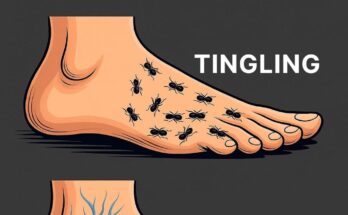In the world of micronutrients, selenium might not get the same attention as iron or calcium, but its role in human health is no less critical. This essential trace element plays a central role in maintaining a healthy thyroid and protecting the body against oxidative stress. Selenium’s influence spans from supporting the immune system to regulating metabolism, but its most compelling roles lie in thyroid function and antioxidant defense.






What is Selenium?
Selenium is a trace mineral that the body needs in small amounts, but it’s involved in powerful biological processes. It is incorporated into selenoproteins—special proteins that include selenium as a component. These selenoproteins perform a wide range of functions, particularly as enzymes and antioxidants.
The body cannot produce selenium on its own, so it must be obtained from dietary sources such as Brazil nuts, seafood, eggs, and cereals. Soil quality also influences selenium content in plant-based foods, making geographical location a key factor in dietary intake.
Selenium and Thyroid Function
The thyroid gland, located at the base of the neck, is responsible for producing hormones that regulate metabolism, growth, and development. Selenium is one of the most concentrated minerals in the thyroid gland, even more so than iodine, which is more commonly associated with thyroid health.
1. Selenium Supports Thyroid Hormone Metabolism
Thyroid hormones are produced in two forms: thyroxine (T4) and triiodothyronine (T3). T4 is the inactive form and needs to be converted into T3, the active form that the body can use. This conversion is made possible by selenium-containing enzymes known as iodothyronine deiodinases.
Without adequate selenium, this conversion process slows down, potentially leading to symptoms of hypothyroidism such as fatigue, weight gain, and depression—even if iodine levels are sufficient.
2. Selenium Protects the Thyroid Gland from Oxidative Damage
The thyroid is highly active metabolically and produces hydrogen peroxide as a by-product during hormone synthesis. While hydrogen peroxide is necessary for iodine activation, it can also cause oxidative stress and cellular damage if not neutralized.
This is where selenium steps in again. Selenoproteins such as glutathione peroxidase and thioredoxin reductase help neutralize hydrogen peroxide and other harmful reactive oxygen species (ROS), protecting the delicate thyroid tissue from damage. Without enough selenium, the thyroid becomes more susceptible to inflammation and autoimmune attack.
3. Selenium and Autoimmune Thyroid Disorders
Autoimmune thyroid diseases like Hashimoto’s thyroiditis and Graves’ disease are common causes of thyroid dysfunction. In Hashimoto’s, the immune system attacks thyroid tissue, leading to hypothyroidism. In Graves’, the attack leads to an overactive thyroid (hyperthyroidism).
Numerous studies suggest that selenium supplementation may reduce thyroid antibody levels in patients with autoimmune thyroiditis, particularly anti-thyroid peroxidase (TPO) antibodies. Lower antibody levels typically indicate a less aggressive autoimmune response, which may translate to better long-term thyroid function and symptom relief.
Although selenium is not a standalone treatment, it may serve as an adjunct therapy, particularly in selenium-deficient individuals.
Selenium as an Antioxidant Powerhouse
Antioxidants are molecules that neutralize free radicals—unstable molecules that can damage cells, proteins, and DNA. Oxidative stress, caused by an imbalance between free radicals and antioxidants, is linked to aging and many chronic diseases, including cancer, cardiovascular disease, and neurodegenerative disorders.
Selenium’s antioxidant properties are largely due to its incorporation into selenoproteins like:
1. Glutathione Peroxidase (GPx)
This is one of the body’s most powerful antioxidant enzymes. GPx detoxifies hydrogen peroxide and lipid peroxides, converting them into harmless water and alcohol. This action prevents damage to cell membranes, proteins, and DNA.
There are multiple forms of GPx in the body, each targeting different tissues and types of oxidative stress. All of them require selenium to function optimally.
2. Thioredoxin Reductase
Another vital antioxidant enzyme, thioredoxin reductase, plays a role in maintaining the redox state of cells, promoting DNA synthesis, and supporting immune function. This enzyme helps protect against oxidative stress at a cellular level, and its activity is selenium-dependent.
3. Selenoprotein P
This multifunctional protein acts as a selenium transport protein and antioxidant. It delivers selenium to tissues and also helps neutralize peroxynitrite, a highly reactive nitrogen species implicated in inflammation and cellular damage.
Selenium Deficiency: A Hidden Risk
Although selenium deficiency is relatively rare in developed countries, it can still occur, particularly in areas with selenium-poor soil or in individuals with certain health conditions. People with gastrointestinal diseases like Crohn’s or celiac disease, or those undergoing dialysis, are at greater risk due to impaired absorption or increased selenium loss.
Signs of selenium deficiency may include:
- Fatigue and cognitive fog
- Muscle weakness
- Hair thinning
- Weakened immunity
- Increased risk of thyroid disorders
In extreme cases, selenium deficiency can contribute to specific conditions such as:
- Keshan disease: A type of cardiomyopathy linked to low selenium intake, seen historically in parts of China.
- Kashin-Beck disease: A joint and bone disease also associated with selenium deficiency.
Selenium Supplementation: When and How?
Selenium supplements are available in various forms, including selenomethionine (organic form) and sodium selenite (inorganic form). Selenomethionine is generally better absorbed and retained in the body.
Recommended Dietary Allowances (RDA)
- Adults: 55 micrograms (mcg) per day
- Pregnant women: 60 mcg
- Lactating women: 70 mcg
- Upper intake limit: 400 mcg/day
It’s important not to exceed the upper limit, as excessive selenium intake can lead to toxicity (selenosis), which causes symptoms like:
- Nausea and vomiting
- Hair and nail brittleness or loss
- Neurological disturbances
- Garlic breath odor
Should You Supplement?
If you’re at risk of deficiency due to diet, geographical region, or medical condition—or if you have an autoimmune thyroid disease—selenium supplementation might be beneficial. However, it’s best to consult with a healthcare provider before starting, as testing selenium status through blood tests can help determine the appropriate dosage.
Natural Sources of Selenium
You can usually meet your selenium needs through a balanced diet. Some excellent food sources include:
- Brazil nuts (1–2 nuts may provide over 100% of daily needs)
- Tuna and sardines
- Turkey and chicken
- Eggs
- Brown rice
- Sunflower seeds
Keep in mind that selenium content in plant foods depends on soil selenium levels, which can vary widely between regions.
Final Thoughts
Selenium may be a trace mineral, but its importance in the body is anything but minor. From regulating thyroid hormones and supporting immune function to acting as a frontline defender against oxidative stress, selenium plays indispensable roles in maintaining overall health.
In particular, its contributions to thyroid health and antioxidant defense make it a nutrient that deserves more attention—especially in individuals with autoimmune thyroid conditions, those living in low-selenium regions, or people at risk of chronic diseases linked to oxidative damage.
As with all nutrients, balance is key. Too little can impair crucial biological functions, while too much can be harmful. Whether through food or supplements, ensuring optimal selenium intake can be a simple yet powerful step toward better health and resilience.



